Currently, there are around 4,000 foreigners from about 100 countries living in Beppu city, which makes it a city of diversity and inclusion. Furthermore, Beppu is known for having the first mosque in the Kyushu region, and seeing people wearing the hijab on a daily basis is a normal thing here.
This time, we had an interview with members from the Research Center for Muslim Affairs (RCMA) of Ritsumeikan Asia Pacific University (APU) in Beppu. The word "Research Center" may make you think of a facility that conducts research on halal, but in fact, RCMA is a place where professors work on courses to deepen everyone’s knowledge of halal-related business and developing halal products with various companies.
Now, let's have a talk with Professor Sasagawa Hideo, the director of RCMA, and Associate Professor Dahlan Nariman, the deputy director.
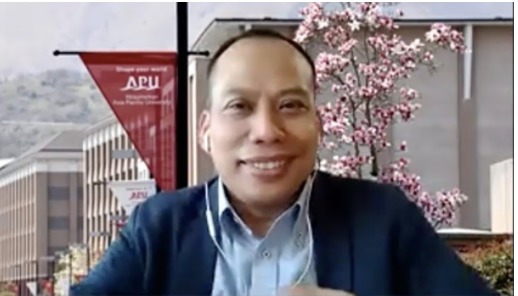

Associate Professor Dahlan :
At our research center, apart from conducting research, we also have on-going practical projects. In these projects, being the main members, students will engage in developing a halal product through various phases from product planning, tasting, to making a marketing strategy. For the testing purpose, we have not only Muslim students but also students from Southeast Asia, South America, South Asia, or the Middle East involved in the product development process. I think this is something that can only be done in APU, where students from more than 90 countries come together for educational purposes.
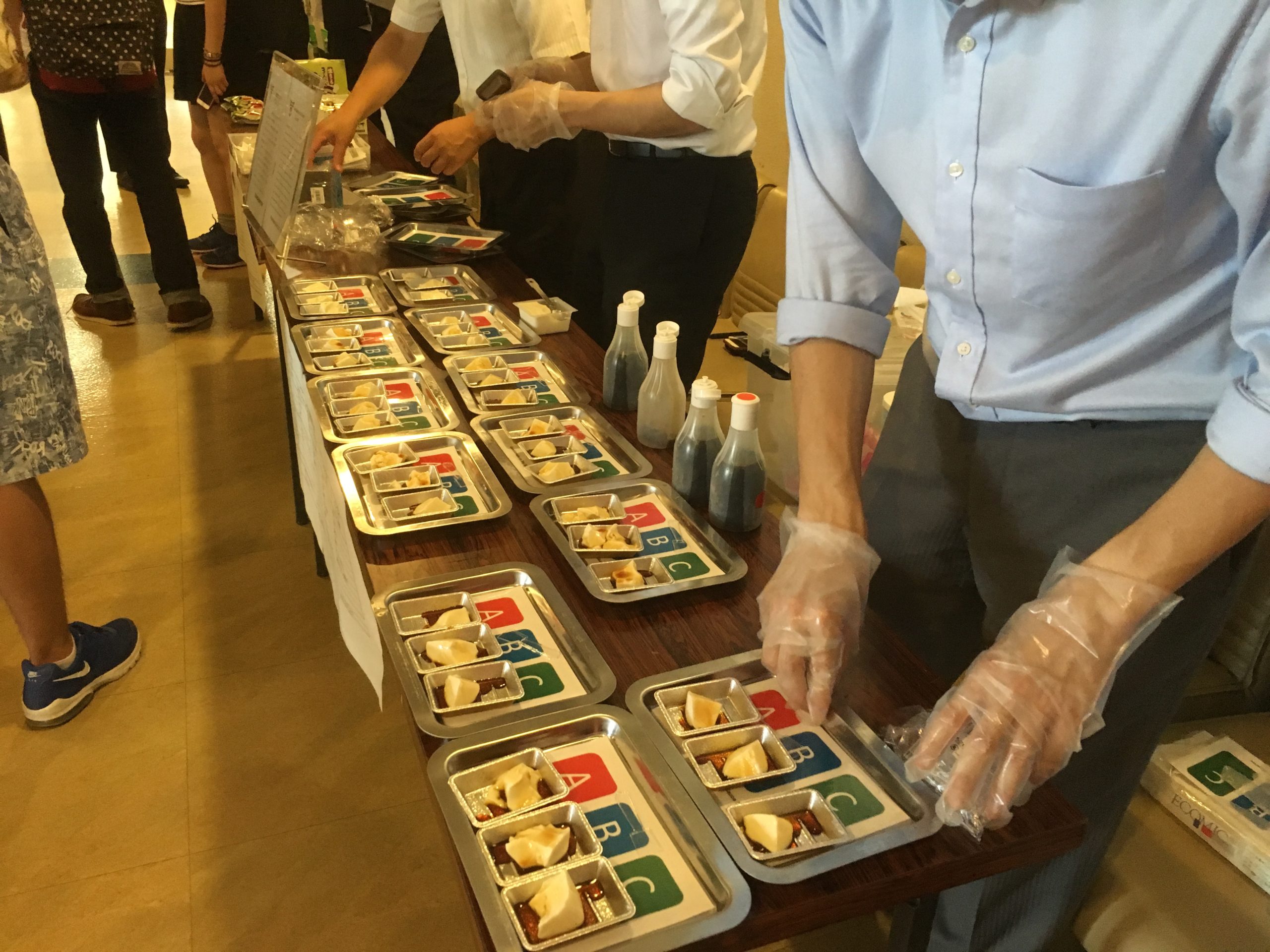
Professor Sasakawa :
At our center, rather than just seriously researching Islamic teaching, as part of the lessons, the students themselves are working on projects together with companies to produce Halal products. The developed products are then lined up at the university’s co-op and Beppu Station’s souvenir shops. I'm also thinking of ways to proceed with a marketing-oriented project to figure out how these products will be sold through other channels from now on.
Associate Professor Dahlan :
We also participated in the menu development of a Halal restaurant in Kyoto. After all, thanks to having students from various countries, APU can help give advice on various business points such as tasting and selling methods.

To begin with, let’s roughly explain about Muslim
People who believe in Islam, one of the three major religions in the world, are called Muslims. Islam has various lifestyle-related teachings, and Muslims live by those teachings every day.
Reference: Japan Tourism Agency "Hospitality towards Muslim Guidebook Aiming to improve the environment to welcome Muslim visitors" https://www.mlit.go.jp/common/001101141.pdf
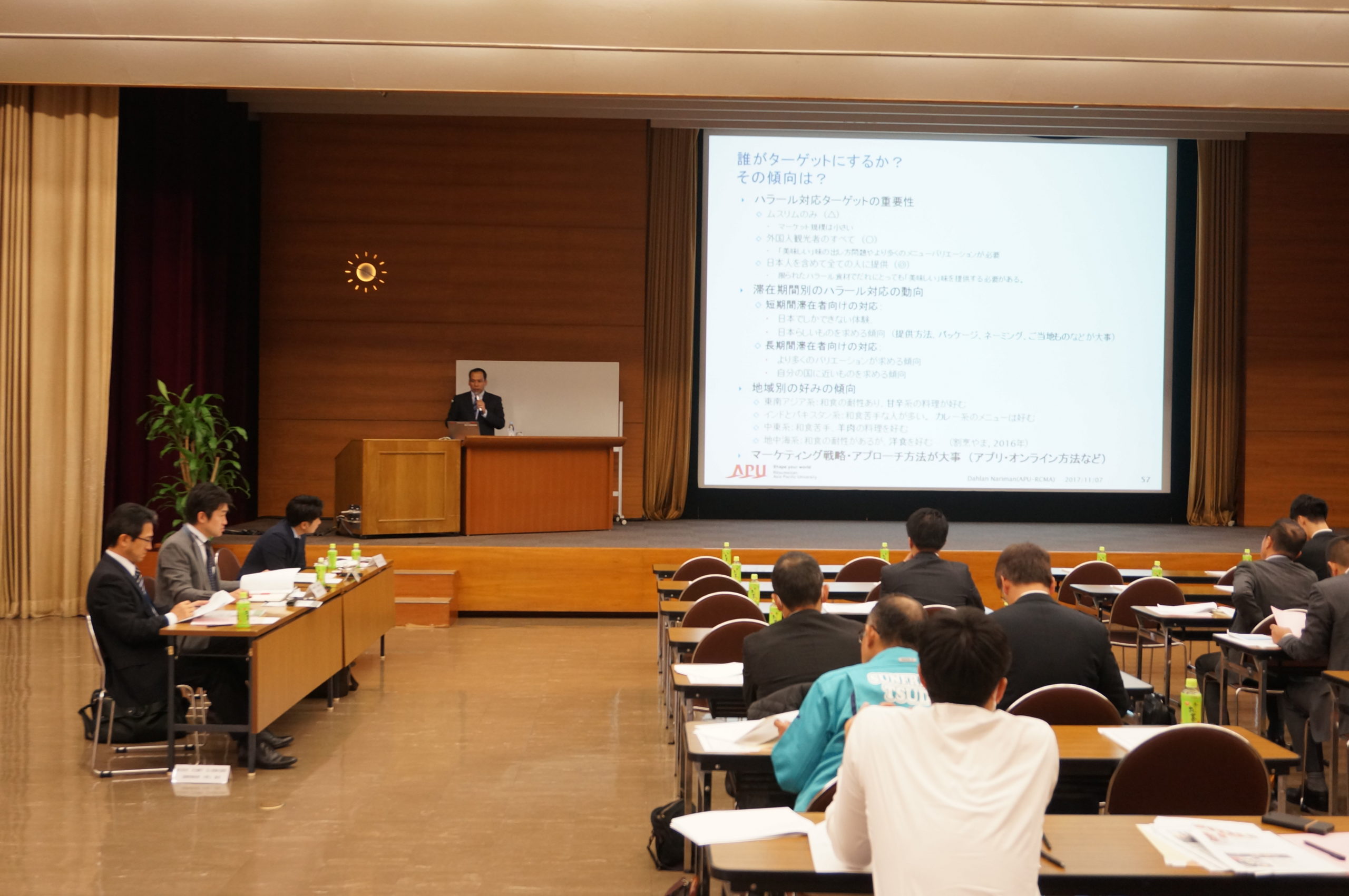
The current Muslim population is about 1.6 billion people, but the population growth rate is high, and it is said that it will be the largest population by religion in 2040. Therefore, business opportunities for products targeting the Muslim market are gaining attention. However, targeting this market requires an absolute understanding of the Muslim culture such as what you should not eat and Halal. For example, getting interested in a bank is not in accordance with Halal, so do not expect to do it. Asset management must also be done in a way that is permitted by Muslim rules, not in the traditional way.
Characteristics of Muslim culture which are different from Japan
✓ Cannot eat pork
✓ Avoid drinking alcoholic beverages
✓ Avoid meat other than meat processed by Islamic slaughter method (Halal meat)
✓ Worship 5 times a dayIn addition, there are other points that are different from Japanese culture, such as the fasting month (Ramadan).
Reference: Japan Tourism Agency “Hospitality towards Muslim Guidebook Aiming to improve the environment to welcome Muslim visitors" https://www.mlit.go.jp/common/001101141.pdf
Associate Professor Dahlan:
I think for multi-cultures to coexist, everyone must understand each other’s cultures. In Japan, I believe that there are still many things about Islam that are not yet known and fully understood, such as the word “Halal”. For example, Singapore is multilingual, multicultural, and multireligious, yet various people coexist in a well-balanced manner, so I think Japan should refer to such a country.
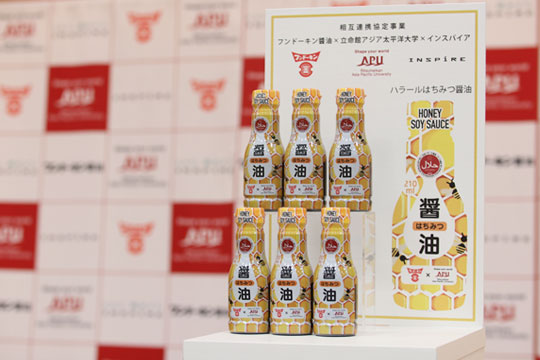
Halal honey soy sauce developed with Fundokin Shoyu in Oita prefecture
Professor Sasakawa :
On the other hand, we also have to think of the extent to which we can carry out.
For example, there are various rules for the chicken to be served, such as chanting the Quran when tightening the chicken. At APU, since the opening of our cafeteria, we have been serving students with meat that was prepared in the said manner. That's why dishes provided in APU's school cafeteria are more expensive than in other universities. Furthermore, from 5 to 6 years ago, I have been changing everything from pots, kettles, and tableware. If you visit the cafeteria, you can notice there are green tags in front of the entrance. When you put that flag on your tray, we will serve you using a plate exclusively for Muslims. That’s how closely we care about the way we serve Halal food. However, it is quite difficult for everyone to do that much.
At first, companies thought of imitating APU’s serving method for Muslims, but then they started to wonder if their customers, as Muslims who decided to come to Japan, will require that much from services in Japan.
Actually, although Islam is a religion, it also carries a lot of personal aspects, acting as a connection between the practitioner himself and God, so there are Muslims who say that as long as there’s no pork in their dish, they would be fine to eat even chicken meat sold at ordinary supermarkets. So just by showing that there is no pork and alcohol, the food can be introduced as Muslim-friendly. And in the sense of multicultural coexistence, there are also vegetarian customers, so it is necessary to show what is in the ingredients by means other than words, like using pictures of pigs and chickens for instance.
It's important not to lie but to tell customers exactly what is done within your business.
What is halal food?
The Arabic word for "forgiveness" in Islamic teaching is Halāl [Arabic: حلال Halāl]. On the contrary, the word that means "forbidden" is "haram". Some people refer to Haram as non-halal. Halal and Haram are ideas that indicate whether things or actions are "forgiven" or "forbidden" by God. For example, lying or stealing things is defined as "haram." Halal food refers to the meat of animals "slaughtered" according to Islamic methods, or their derivatives.
Reference: Barrier-Free Japanese Food Association Halal Division "About Halal" http://www.halal.or.jp/halal/
Professor Sasakawa :
Just ask! Many Japanese people have the presumption that religion is something special or scary, but actually, almost all Muslims will say things like: "OK, I'll teach you anything, just ask me anything!". So I think we should ask questions first instead of being too cautious. Even if you might make a mistake once in a while, I think that's fine.
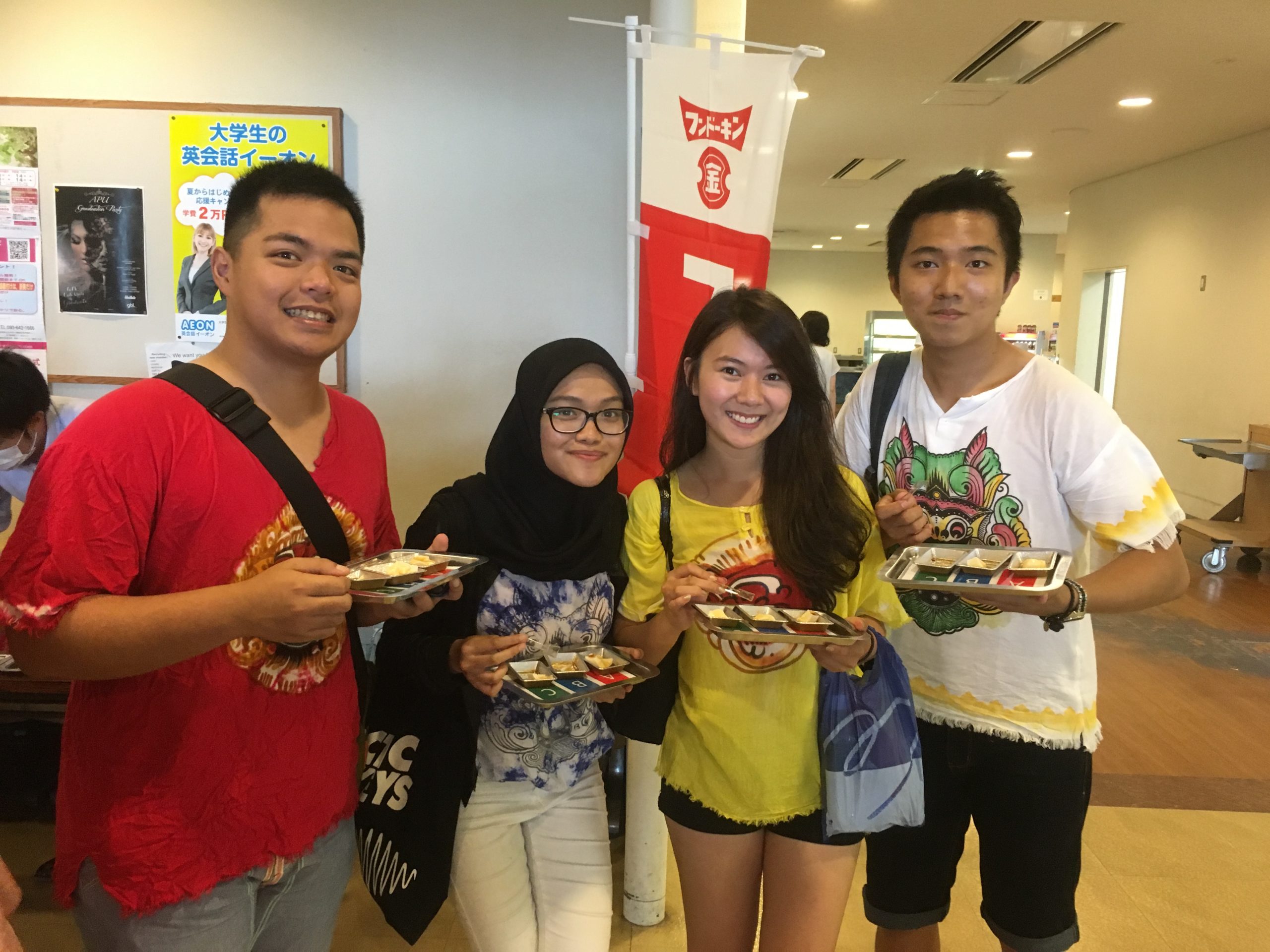
Associate Professor Dahlan :
I agree. Although Muslims are all practitioners of Islam, they have slightly different sets of things in what is allowed and what is not allowed, therefore, it is necessary to ask the person himself.
At first glance, Islam is often regarded as a religion with many taboos, but in reality, each person has their own standards, and asking about those standards is not considered a taboo. I once again felt that it’s important to have an open-minded attitude of approaching each other to understand the cultural differences. I hope that Beppu will expand the circle of understanding and kindness because the division and discrimination in the world are spreading due to the influence of the coronavirus pandemic.


I was born and raised in Tokyo, and I'm a Beppu lover! I have been a Girl Scout, studied abroad in the US, and interned at a UN agency. I started a student organization (Instagram: @equal.apu) to promote the idea of gender equality at the end of 2019 and am currently working on one of my university's selection projects.
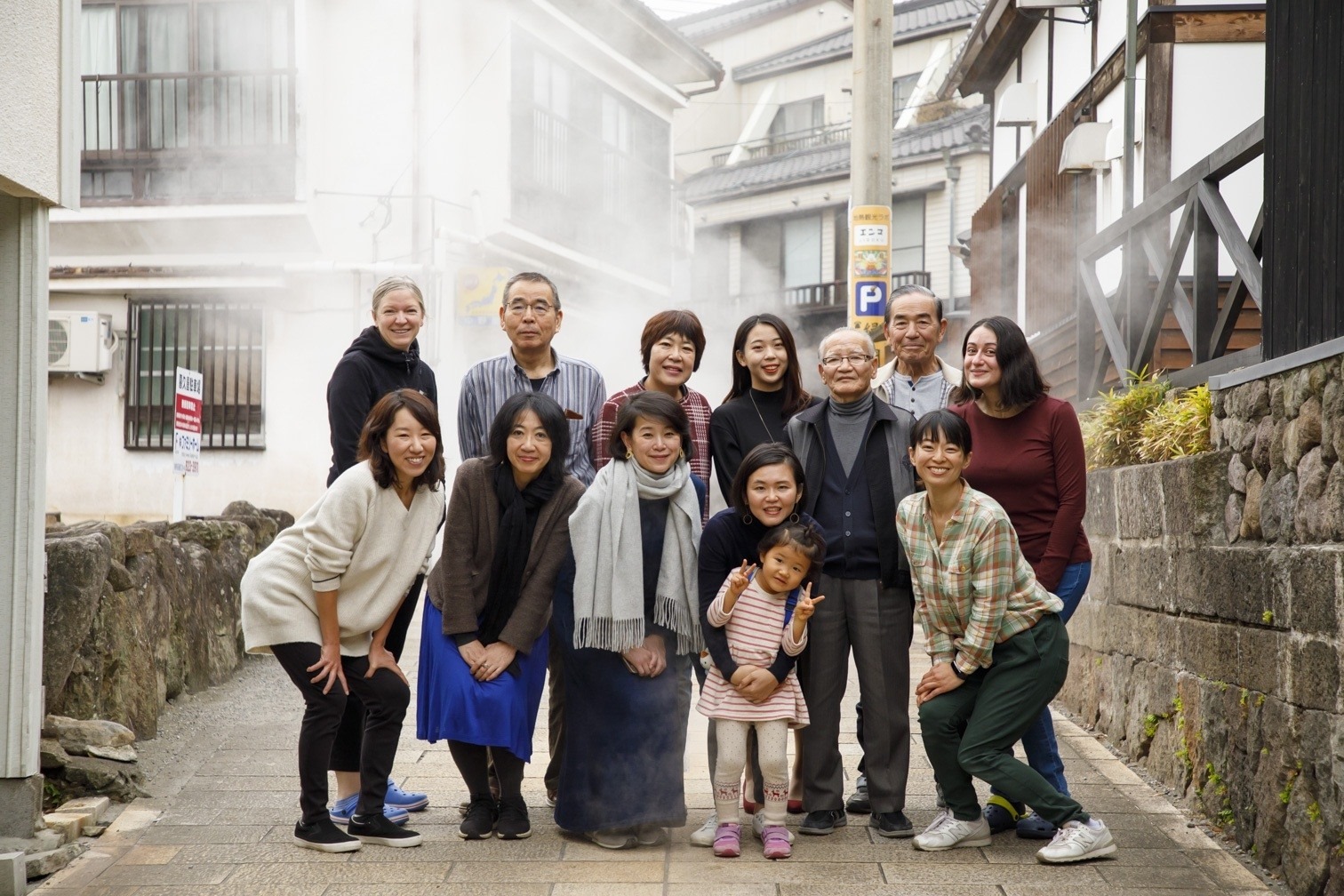
2020.11.30
cultureproject
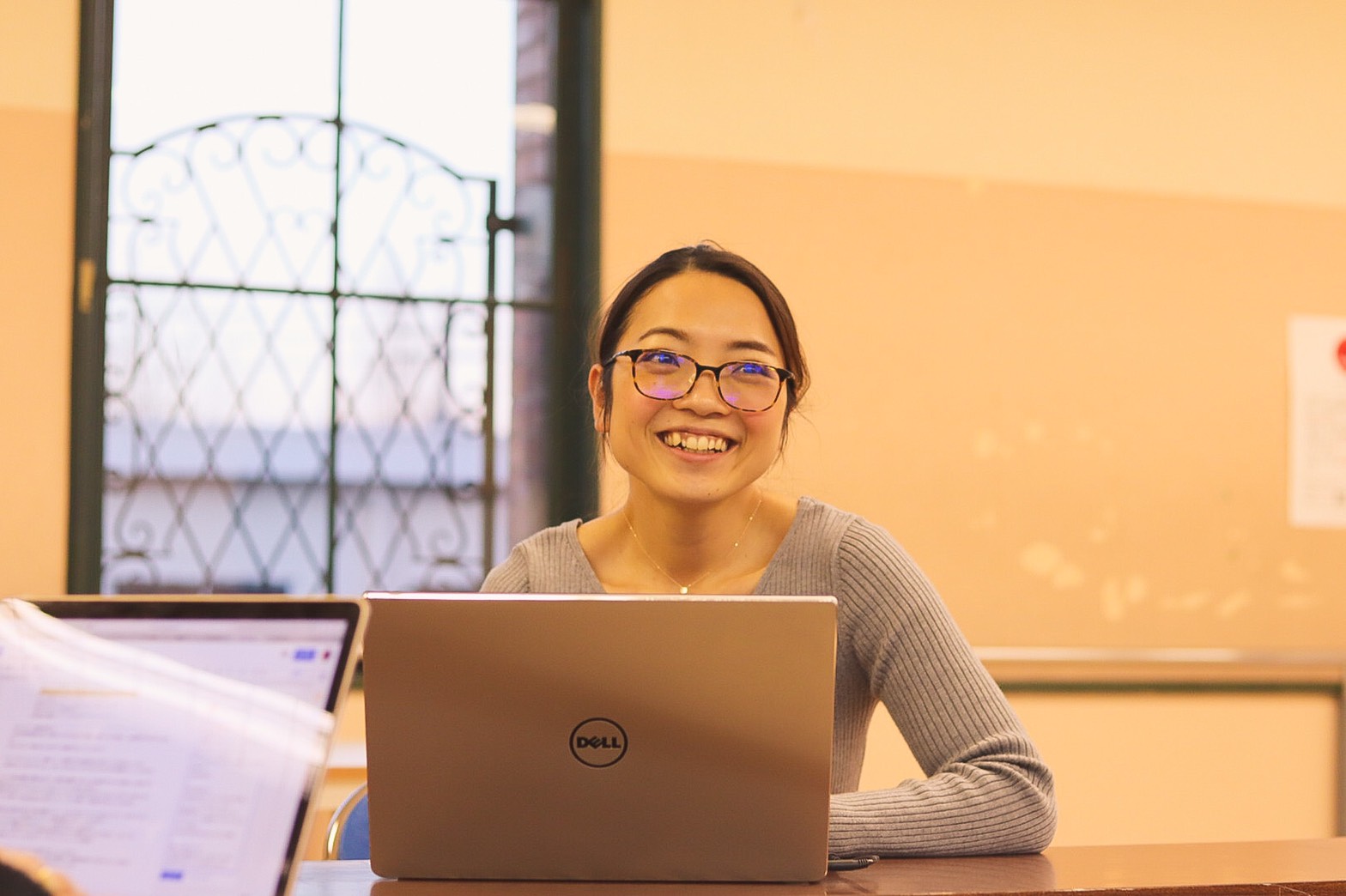
2021.05.18
Enterprise Introduction
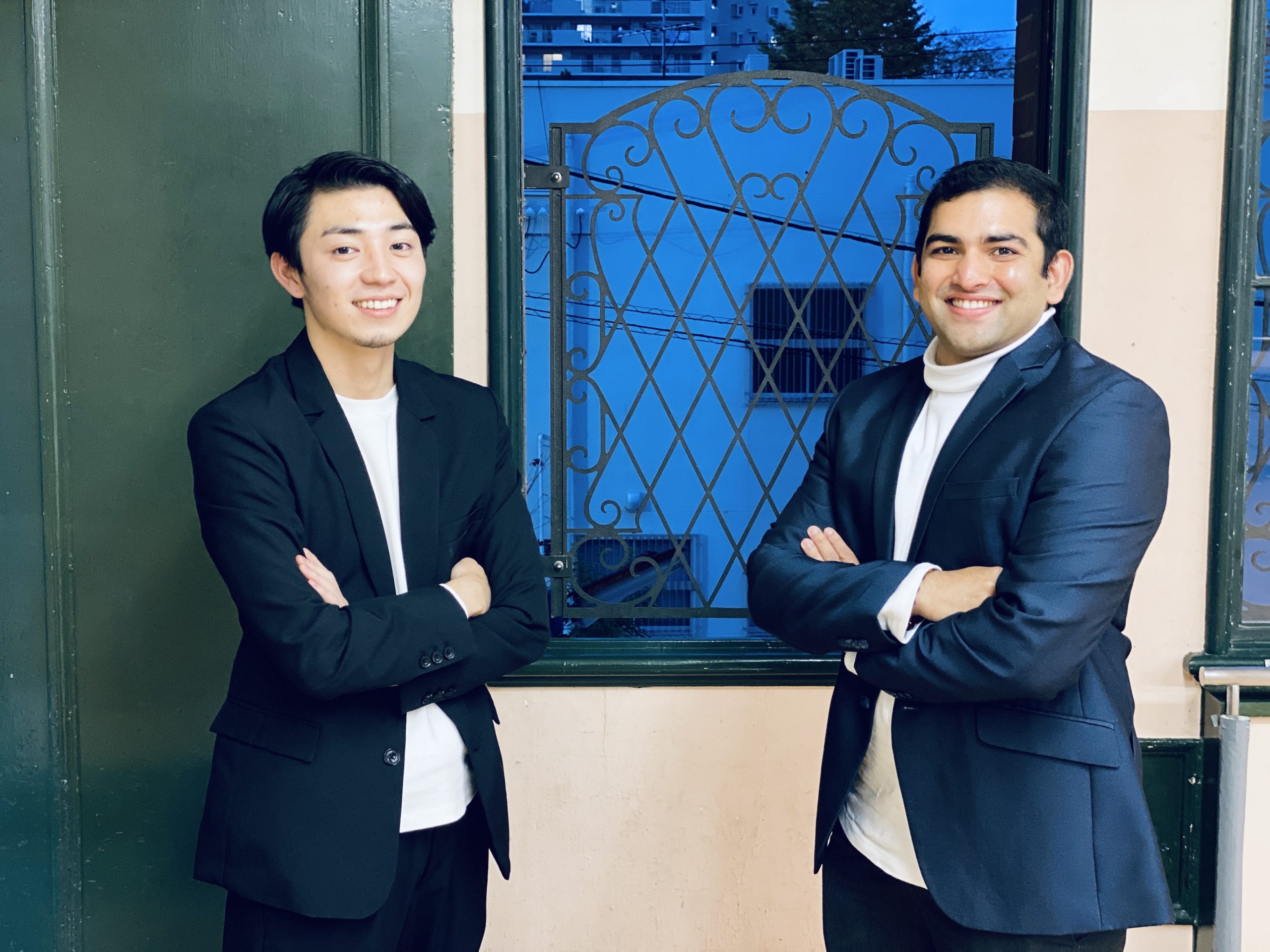
2020.12.25

2021.06.03
project